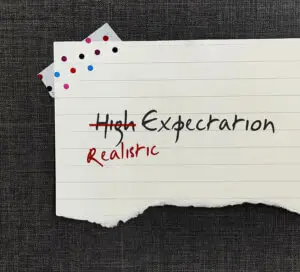Cultivating Empathy in Children
April 17, 2024

This blog is part of a series on Fostering Healthy Minds in Children at Church that provides strategies children’s leaders can use to foster healthy minds in children to whom they minister. And, hey, you may even pick up a tip or two to help those in your personal circles! If you’re new to the series, we encourage you to check out the introduction here.
Leaders can be role models for children in their missions discipleship group through compassion combined with action when hard things happen. Cultivating empathy in children is a great place to start. Let’s break this down.
I’m praying for you. I wish I could help. Have you ever said these words? Or has someone ever said these words to you? They sound like great phrases to say when someone is in need, but what happened before those statements were made? In my experience, words rarely hold value when there is no preceding action or genuine care.
Think about it: In the depths of your despair, what do you really need? Human beings, including children, need human connection and, often, tangible things to help.
Words are often easy for us to say. In certain circumstances, they don’t require vulnerability, they don’t require inconvenience, they don’t require us to lend a helping hand. And words make us feel better about ourselves, having given the perception we are doing something.
But Christians have to stop taking the easy way out. What do the words I wish I could help mean if you haven’t first asked how you can support the person in need? What does I’m praying for you mean if you haven’t asked how specifically you can be praying?
Paul wrote to the church at Philippi (from jail, no less!): “None of you should look out just for your own good. Each of you should also look out for the good of others. As you deal with one another, you should think and act as Jesus did” (Phil. 2:4–5 NIrV). The example he then gives of Jesus is that He humbled Himself, even to suffer a painful and humiliating death on a cross. Paul is encouraging Christians to sacrificially, humbly serve others.
How can we encourage this in the young minds we are investing in? By being an example.
When someone is struggling, having a hard day, or has had something terrible happen to them, stop and pray before responding. Pray for God to give you the courage to reach out. Pray that God will give you opportunities to connect and support. And then ask the questions. Sometimes you may be able to help, and sometimes you may not. But be available and ready.
Practically, pray this in your missions discipleship group and then have a brainstorming session. Discuss tangible ways children can help. Be a role model and explain to children that you will ask the person in need how your group can help. Again, maybe your group will be able to help, and maybe not, but this serves as a starting point and also acknowledges to the person in need you are trying to help.
Cultivating empathy in children is a great way to start a discussion around ways to help others. Help children understand and connect with the feelings that generally accompany being made fun of, lonely, sad, lost, poor, hungry, bullied, etc. This can be done with a simple question like, How do you think it would feel to be ____. Then you can ask, If you felt like that, how might you want someone to help you? Their responses can help direct the ways in which your group offers to help to someone.
The more we can help children connect to the experiences of others on a deeper emotional level, and then help them put action to that connection, the better equipped they will be to respond with genuine compassion and action when they face similar situations on their own. And then you will see disciples of Christ who are not afraid to help when someone they know is experiencing trouble, when a missionary calls for help, or when there is a problem in their community.
Brooklyn Hancock is Licensed Mental Health Counselor, Registered Play Therapist, mom, and former Certified School Counselor. Her passions are working with children, adolescents, teens, adults, and parents to navigate life’s toughest challenges.
Disclaimer: The information shared on wmu.com is not meant to diagnose or treat a mental health condition. We encourage you to follow up with your health-care provider and seek a mental health professional for individual consultation and care.













